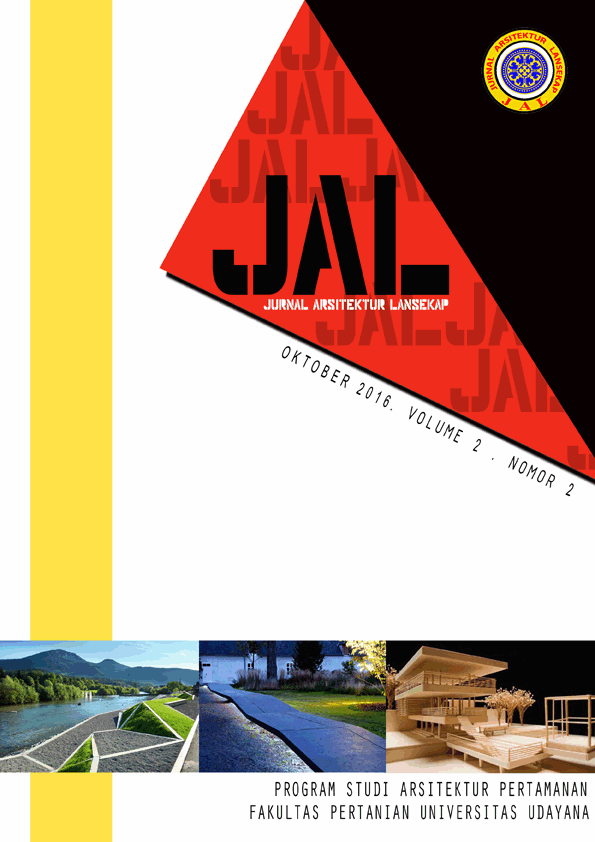Studi Potensi Subak Tanah Yeng Sebagai Kawasan Agrowisata di Desa Sedang, Kecamatan Abiansemal, Kabupaten Badung
Abstract
ABSTRACT
Tanah Yeng Subak Potential Study as an Agrotourism in Sedang Village, Abiansemal, Badung Regency
Subak as a world heritage needs to be preserved. The issue of existence reduction of subak cause decreasing of Bali tourism attractiveness that really gives huge impact to Balinese economic-social life. One of the alternatives to prevent agricultural land into non-agricultural land is developing subak becomes agro-tourism object. Tanah Yeng Subak is one of subak that is located in Desa Sedang, Abiansemal, Badung Regency which has a big potency to be developed as an agro-tourism object. The aim of this writing is to identify the tourism potencies of Subak Tanah Yeng which can be developed become a tourism activities object. The result of the research that have been collected shows some tourism potencies of Subak Tanah Yeng, such as: the accessibility to this area is easy to reach, friendly population, regular planting rotation, cultivating diversity commodities, good maintained Subak Temple, 89,2% of the population are in productive ages, local instances that support economic matters of the population, strong and unique customs in terms of farming ceremony and Subak Tanah Yeng also provides beautiful landscape.
Downloads
An author who publishes in the Jurnal Arsitektur Lansekap (JAL) agrees to the following terms:
- Author retains the copyright and grants the journal the right of first publication of the work simultaneously licensed under the Creative Commons Attribution-ShareAlike 4.0 License that allows others to share the work with an acknowledgement of the work's authorship and initial publication in this journal
- Author is able to enter into separate, additional contractual arrangements for the non-exclusive distribution of the journal's published version of the work (e.g., post it to an institutional repository or publish it in a book) with the acknowledgement of its initial publication in this journal.
- Author is permitted and encouraged to post his/her work online (e.g., in institutional repositories or on their website) prior to and during the submission process, as it can lead to productive exchanges, as well as earlier and greater citation of the published work (See The Effect of Open Access).
Read more about the Creative Commons Attribution-ShareAlike 4.0 Licence here: https://creativecommons.org/licenses/by-sa/4.0/.







